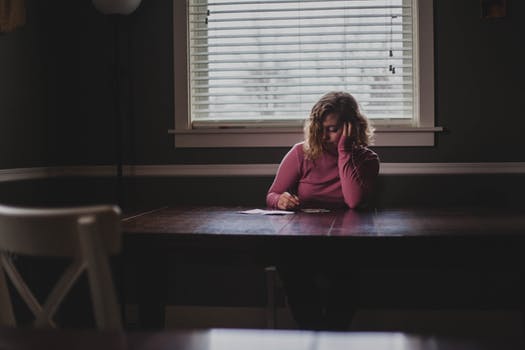Counsellor Sarah Barr shares helpful tips for anyone with anxiety who may struggle to sleep soundly.
“My nights are for overthinking, my mornings are for oversleeping”
It’s 3am.
You’re wide awake, just laying there in the stillness of night.
Staring at your ceiling,
replaying all the conversations you had during the previous day.
Anxiety eating away at your mind, making you nervous and nauseous all at once,
Thoughts of “why did I say that” and “what will they think”, on repeat in your mind.
Sleep is not your friend.
When you have anxiety, your adrenaline levels are constantly running higher than ‘normal’. It’s essentially like being put through the ‘fight or flight’ theory every day.
Sleep is vital for our body to repair itself, for cognitive function and for general all-round good health. It is recommended that we get eight hours sleep a night, but for those who have anxiety sleep does not always come easy. It can be so difficult to switch off and fall asleep. When you do finally fall asleep you are not able to get enough sleep so you wake up grumpy, irritable and sluggish in the morning.
Sleep is necessary for helping our mental health and well-being. Below I have listed 15 tips and ideas that you might be able to try in helping to get a good night’s sleep.
Go to bed at the same time every night and wake up at the same time every morning, even on the weekends. Experiment with different bedtimes and wake-up times to find your natural sleep cycle.

2. Eliminate napping
If you take a nap, try to keep it to 30 minutes and take your nap in the early afternoon. Later naps may interfere with your ability to fall asleep at night
3. Turn off your phone
Turn off electronic devices at least 30 minutes before your set bedtime. Besides keeping your mind stimulated, the lights electronic devices can make your mind believe it is still daytime.
4. Dim the lights
Start dimming lights around the house several hours before bedtime. Change a few light bulbs to a lower wattage; that way you can turn off the brighter lights and still have some light. The lower light level will signal your body to produce melatonin and get ready to go to sleep.
5. Stay away from alcoholic drinks
While a drink at night may help you fall asleep at first, you don’t get the same quality sleep after drinking.
6. Stay away from caffeinated drinks
Caffeine can affect your sleep, so cutting down on caffeinated drinks especially a couple of hours before you go to bed can help.
7. Exercise
Exercise helps reduce anxiety and depression and improves sleep quality.

8. White noise
Many people find the sound of a fan or static to be soothing and cover up other night-time noises that are keeping you awake.
9. Create a pre-sleep ritual
This might be reading, meditating, having a warm bath or listening to music. This helps clear your mind. Your night time ritual can be anywhere from 10 minutes to an hour long, it is up to you!
10. Write down your worries
Write down everything you are worried about and then shut the notebook and say good-night to your worries. Writing down our worries and thoughts can give us clarity and help to process them better.
11. Keep a sleep journal
Write down what time you go to bed, how long it takes to fall asleep, how many times you wake up, what time you wake up in the morning, how you slept. You also want to record what you ate the night before, what activities you did close to bedtime, how much exercise you got, etc.
Keeping track may help you see patterns and realize what types of activities/food keep you awake and which help you sleep better.

12. Aromatherapy
Some scents, such as lavender or chamomile help you relax. Spray scents on your pillow (lightly) or use a sachet under your pillow to see if a certain scent helps you relax.
13. Breathe deeply
When you lay in bed, take a few minutes to breathe deeply. Inhale for slowly, hold for 4 seconds and then exhale slowly, repeating 10 to 15 times. Pay attention to your breathing. This should help you relax and clear your mind.
14. Practice gratitude
When you lay in bed, think about what you are grateful for. Make a list in your head; be grateful for the positive people and experiences in your life.
15. Reach out
If lack of sleep and the inability of falling asleep is really impacting on your mood and thoughts, seek help. Contact your doctor or a counsellor. They will be able to provide the help and support you may need.

For more information, I can be contacted by calling 086 4477867 or send a pm through my Facebook page
Take Care ~Sarah















